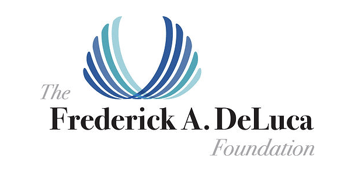DeLuca Foundation Micro-Internship Program Update
Grant-Funded Micro-Internships Exclusively for Connecticut and Florida Students
The Frederick A. DeLuca Foundation Micro-Internship Program is off to a great start with hundreds of students and organizations in Connecticut and Florida engaging in short-term, paid professional projects.
Thanks to a generous grant generous grant from the Frederick A. DeLuca Foundation, this incredible program is available at no cost to students, employers or colleges/universities!
To help your students, alumni and employer partners take full advantage of this opportunity, please join us to hear:
- Updates about what students and employers are participating,
- Types of projects they're working on,
- How (and why) colleges/universities are sharing this program with others; and
- Answers to your questions on how this program can be successful at your institution
Join us live on Thursday, June 1st at 12 pm ET.
Live webinar won't fit in your schedule?
Register to have the recording sent you afterwards.
Frequently Asked Questions
Use tab or arrow keys to navigate the FAQ. Press enter or space to expand questions and reveal answers.
A Micro-Internship is a short-term project that can typically be completed within 10-40 hours and is due within a few days to a few weeks. These projects require no on-boarding and can be completed by a college student with minimal instruction. These are important but low-risk tasks that aren’t the best use of your time.
Thanks to the generous support of the Frederick A. DeLuca Foundation, all 15-hour Micro-Internships that are part of this program is available at no cost to the organization so long as they select a student who has attended or graduated from a postsecondary college or university in Connecticut or Florida.
The student receives $300 upon completion of the 15-hour project which is funded by the Frederick A. DeLuca Foundation.
No. While the students who are completing Micro-Internships as part of this program need to be a current student or graduate of a Connecticut or Florida postsecondary institution, an organization can with locations anywhere in the U.S. are able to participate.
In short, it’s easy as Parker Dewey handles it all. No HR burdens. No conversion fees. No questions about ownership or worries about confidentiality.
Employment: Micro-Interns are not your employees, contractors, interns, temps, or freelancers. Similar to working with a consulting firm or any other service provider, you are engaging Parker Dewey LLC to complete the assignment, and each individual you select is a contractor or employee of Parker Dewey. You can still directly interact with them as much or little as you would like, and always have the opportunity to hire them directly without any costs or fees.
Liability: We’re mission-driven and believe in the power of creating opportunities. That said, we take on all the liability. Not happy with the work product? We’ll give you a full refund or find an alternate Career Launcher.
Work Product: All work product is owned by you.
Confidentiality: While most projects involve public-facing information of a non-sensitive nature, both Parker Dewey and all Career Launchers sign strict NDAs to protect your information. In addition to the standard provisions, the students understand that they are risking their academic transcript or expulsion for any violation of confidentiality.
Background Checks: Given the short-term nature and structure of these assignments, we do not conduct background checks. While companies are always welcome to conduct a background check directly, the nature of the specific assignments and lack of a direct relationship with the individual who is selected has caused most organizations to defer the background check until after a Micro-Internship is completed and a student is offered a traditional internship or full-time role.
Micro-Internships can be either on-site or virtual, depending on the specific requirements of the project. We typically suggest remote, as this provides more flexibility and accessibility.
The project manager will be a member of the organization who posted the Micro-Internship, whether that be a hiring manager, team lead, or another employee.
At the start of the project, the Micro-Intern is connected directly to the project supervisor who will clarify specific expectations and share the information/materials necessary for the Micro-Intern to complete the project. From there, they can engage the student in whatever way works best, whether that be email, Zoom, etc.
For your students, this program simply means that there are thousands of additional projects available where they will only need to compete against other students from Connecticut or Florida vs. a national pool of applicants. Each of the projects funded through this program will appear in the "Featured Projects" section of Parker Dewey, and the students will see these first and in addition to the projects that are open to all students.
Students can access Parker Dewey via your school's landing page link, create their Parker Dewey account (or login to an existing account) and immediately see the projects that are currently available.
